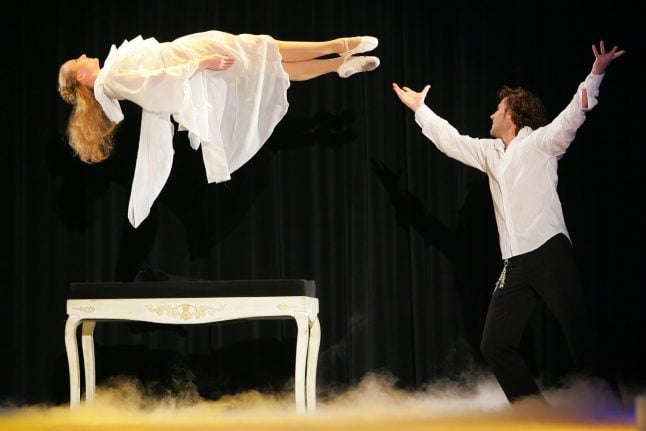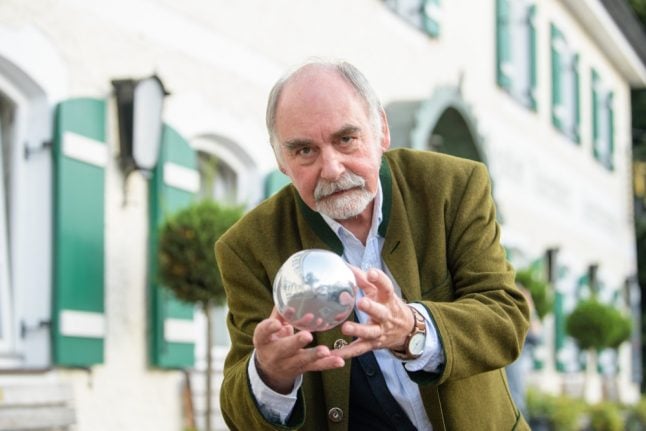A good 35 years ago, Harold Voit founded the Zauberakademie Deutschland (German Magic Academy). Today, its young magicians study in Pullach, near Munich.
“Card tricks are really popular among young people,” says Voit. And the magical allure of wizardry hasn’t ceased since the publication of the first Harry Potter book.
According to Michelle Spillner of the German Magic Circle, many magic theatres have since developed, such as the Alexander Krist Theater in Munich. In the past, it was normally the magician who came to the people, for example, for office parties.
Forever Young: The childlike appeal of magic
Moreover, with the Ehrlich Brothers, there is more magic to be seen on TV. “Our youth workshops have a bigger intake than ever before,” says Spillner, whose Magic Circle has about 3,000 members.
In an unprecedented situation, the number of requests to attend the 60-place meeting in Idar-Oberstein in Rhineland-Palatinate was so big that not everyone could attend. In Meiβen, Saxony, there was also an over-demand for the 50 to 60 places was also enormous.
“The youth workshops are our cadet factory,” says Spillner. The Ehrlich Brothers attended, as well as Marc Weide, who won first place at the Parlour Magic category at Magic World Championships in July in South Korea – with a card trick.
“I would like to show people why you should remain a child in some things, and how you can stay a child. Magic is a super medium for that,” he said recently.
Childlike-ness is a core reason for the fascination in magic, according to psychologist Amory Danek of the University of Heidelberg. “The brain is programmed such that we look for opportunities where the unexpected happens.”
In specialist terminology, it’s called the violation of expectation. It happens constantly to children whose image of the world doesn’t fit what they expect. “If we think that the ball is falling, but it suddenly floats, then we want to know why,” she says.
Additionally, the moment of surprise triggers positive emotions and makes us curious. This is why we often don’t want to know every trick, and why we spend money on magic shows. Spillner adds that “people still hope for the supernatural.”
On the internet, those who are interested in magic find many explanation videos on YouTube. “It’s a really good thing to infect people with magic,” says Spillner. But most of the clips aren’t good enough to learn magic well from them.
“Young people quickly lose interest, because they recognize that magic isn’t just a trick, but that belongs to dramaturgy,” she says.
The head of the Zauberakademie, Voit, has a similar perspective. “There’s a big difference because we have teachers who correct you, who say to you “do it again, that was wrong,” he says.

The Ehrlich Brothers. Photo: DPA
'I know what you're thinking'
For €750, you can study magic for four semesters at Voit’s academy. Magic consists of five basic forms, he says: appearance, disappearance, destruction and re-creation, conversion and flotation. “The last one is the one I find most beautiful. For a long time you can see the wonder of magic.”
As well as all the tricks, the workshops are also about character. “You have to learn to recognize yourself,” says Voit. “There are infinite magic tricks, which are just performed. But you have to have a certain personality, really throw in your personality.”
The students must really learn to entertain people. For this, they also get a lot of acting and speech training from professionals.
Spillner justifies its importance as, amongst other reasons, people nowadays are too enlightened to be simply fooled by a magic trick. “Magic should have additional value,” she says, pointing out it revolves around a story with a common theme, comedy and show effects.
For those who want to stay on trend, there’s mental magic. According to Voit, 30 years ago it was still insignificant. “We performed with feather plumes and glittery props, maybe wearing a glittery jacket. Nowadays it’s “I know what you’re thinking’,” says Voit
One of Voit’s students is Anna-Lena Kahmann, who works in youth welfare and who performs and teaches magic to teenagers in a care home.
“It’s not just distraction, it fascinates them as well,” she says. Voit and Spillner agree on another reason that young people want to learn magic: to flirt. Money can be earned later, for example at Christmas parties or weddings.
For everyone who looks for a magician to entertain, Voit has some advice. “The good ones are recommended, they don’t need to advertise.”



.jpg)
 Please whitelist us to continue reading.
Please whitelist us to continue reading.
Member comments